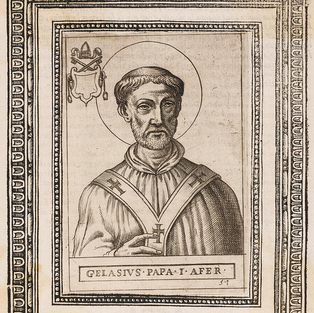History of Valentines
- Mara Phelps and Cathryn Haynes
- Jan 15, 2021
- 2 min read
Updated: Feb 3, 2021
Valentine's day is a holiday with a name sake to St. Valentine. The holiday has been practiced in different forms from Greece to England. There are three officially recognized Saints with names of Valentine or Valentinus. These three were all martyred, two by Emperor Claudius II of Rome and another for helping Christians escape Roman prisons. The third St. Valentine is said to have sent the first Valentine after falling in love with his jailer's daughter who would visit him. Though the truth behind St. Valentine is obscured he became one of the most popular Saints in Middle Ages within England and France. February has historically been seen as a romantic month with some believing the holiday falling within it was due to the date of burial for St. Valentine, while others believe that the date was used to christianize an old pagin holiday. This pagan holiday was Lupercalia, a festival to Faunus the god of agriculture and the founders of Rome, thus this was a fertility festival.
The beginning of Lupercalia was celebrated around the entrance to the cave where it was believed that Romulus and Remus were born. Roman priests would gather in the cave and sacrifice a dog and goat. Stripping the goats hide and dipping it in sacrificial blood then going into town to hit both women and fields with the strips. This was welcomed as it was believed to make what it hit more fertile. Another practice was having the young women in the town put their names into an urn and have the men come and pick a name. The two would then spend the year together and would often end up married. This festival would end with the rise of chirtianity.
Pope Gelasius would declare February the 14th Valentines day at the end of the 5 century. The idea of love with the holiday would become solidified during the middle ages when it was believed that this marked the beginning of the mating season for birds. Valentine greetings would also become popular at this time with the oldest written one being from the Duke of Orleans to his imprisoned wife in 1415.











Comments